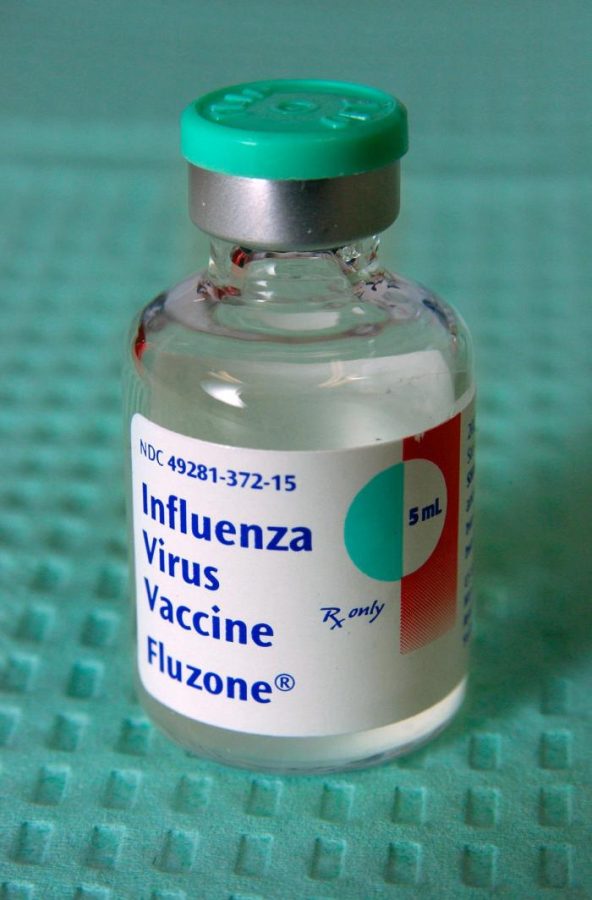FluMist Effectiveness Concerns Limit Vaccine Accessibility
Photo courtesy of Creative Commons
The CDC has issued a statement against using the nasal flu vaccine FluMist this season.
December 8, 2016
For the 2016-2017 flu season, The Center for Disease Control and Prevention (CDC) has recommended not to use nasal spray flu vaccines and to only receive flu shots to get vaccinated.
According to CDC.gov, Influenza viruses spread throughout the United States from late fall to early spring, the time commonly known as flu season. In order to reduce risk of catching the flu, one can receive a vaccine. In the past, a shot and a nasal spray have been available as methods of vaccination for people over the age of six months old. However, starting this year, only the shot will be available.
“In a retrospective study it was found that in the past three years the FluMist was not as effective as the shot,” said Dr. Mindy Maggid, a pediatrician at Shady Grove Adventist Hospital.
Maggid’s practice usually gives out more nasal spray vaccinations than shots and had already placed their nasal spray orders before the new recommendation came out. The practice had to cancel their nasal spray order and order many more shots.
“Everyone six months of age and older need to get their flu vaccine unless there is a medical contraindication,” Maggid said. “Hopefully the vaccine is well matched for the type of flu we will see in our community [this year].”
MCPS held free flu vaccination clinics on Nov. 7 at John F. Kennedy, Richard Montgomery and Seneca Valley high schools. CHS School Nurse Deborah Stapleton added that the clinics were advertised through Edline, which contributed to an increase in students signing up to get the shot.
According to a Sept. 29 Washington Post article, health officials are worried that fewer people will get the flu vaccination, since only the shot is available. As a result vaccination rates could be lower, since most kids prefer the nasal spray.
The possible lower vaccination rates could lead to an increase in the number of people who catch the flu virus. However, since the flu season recently started, it is too early to tell.
“Our practice has seen about three flu cases so far,” Maggid said.
Stapleton believes that most people don’t care what method of vaccination they get as long as their risk of getting the flu decreases.
“They are usually going to get [the vaccination] whether it’s the shot or the mist,” Stapleton said. “They just want to be immunized against the flu.”
According to a survey by the Observer of 100 CHS students, 37 percent of students prefer the nasal spray, while 50 percent prefer the shot and 13 percent prefer not to get vaccinated. Of the students who prefer the nasal spray, 73 percent said that they’d still get vaccinated regardless of the method available to them.
“Most kids who do get the flu and have been vaccinated for influenza do much better than if they were not vaccinated,” Maggid said.


